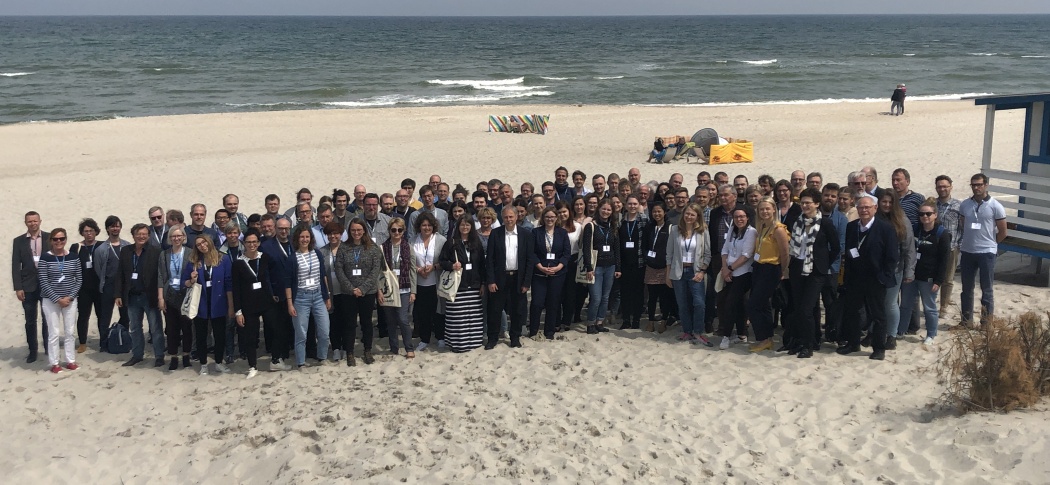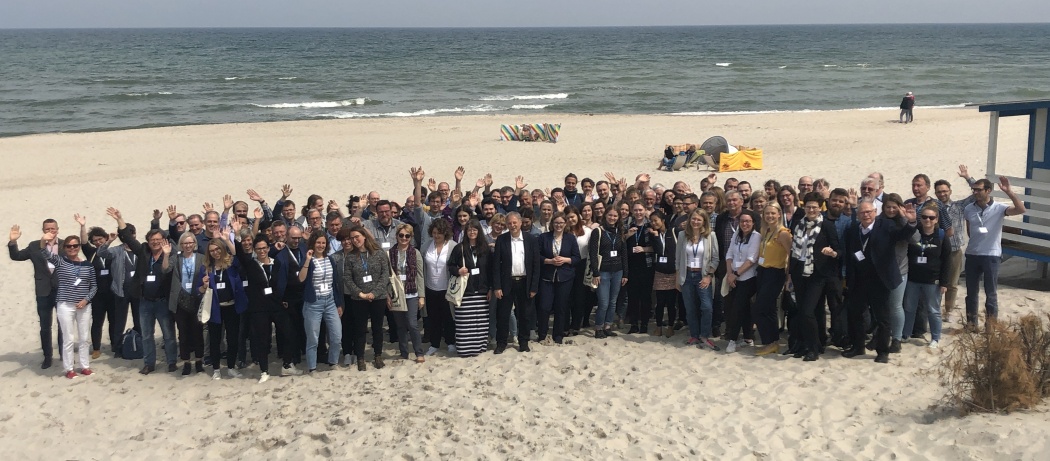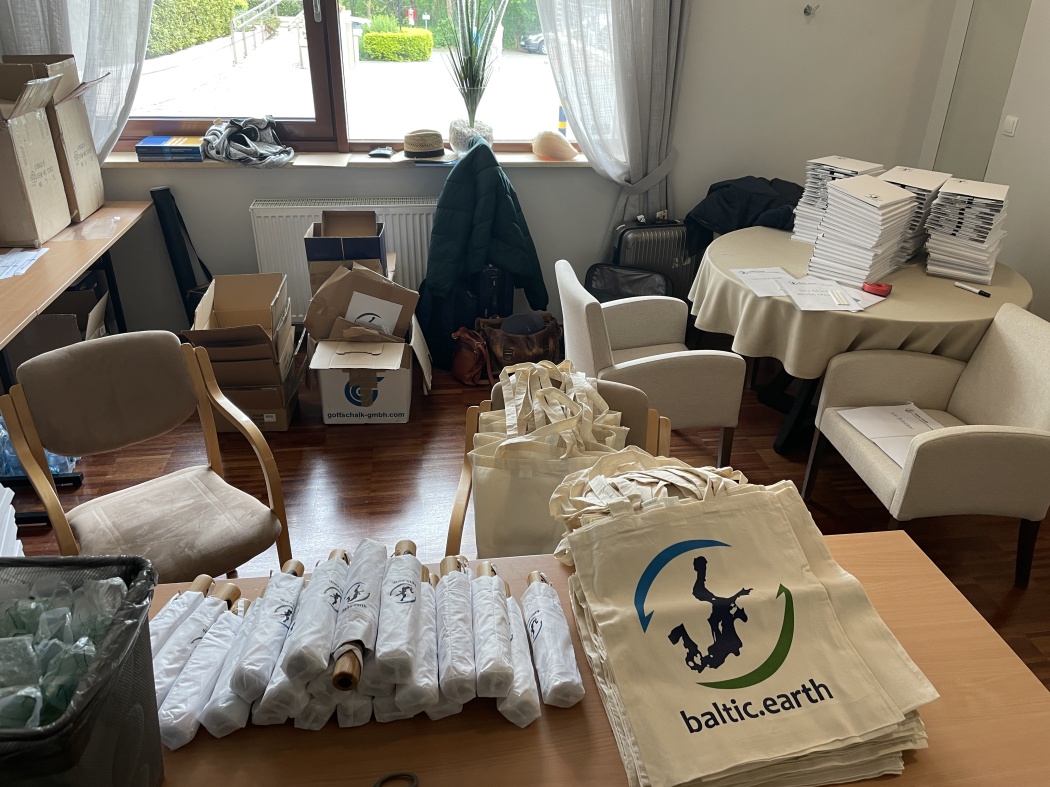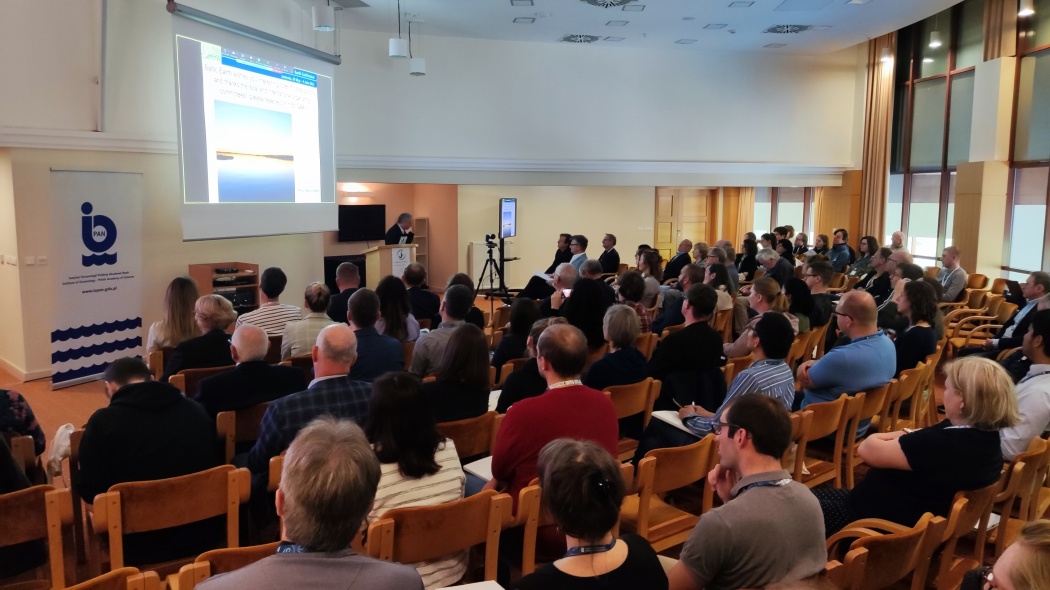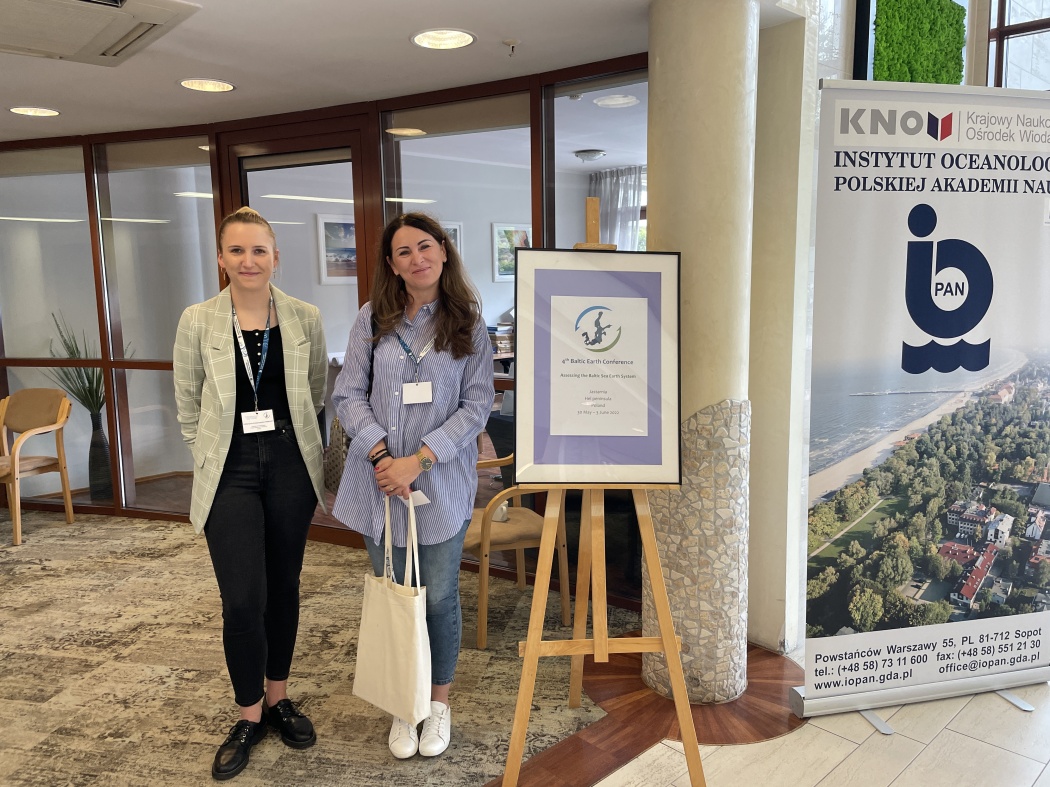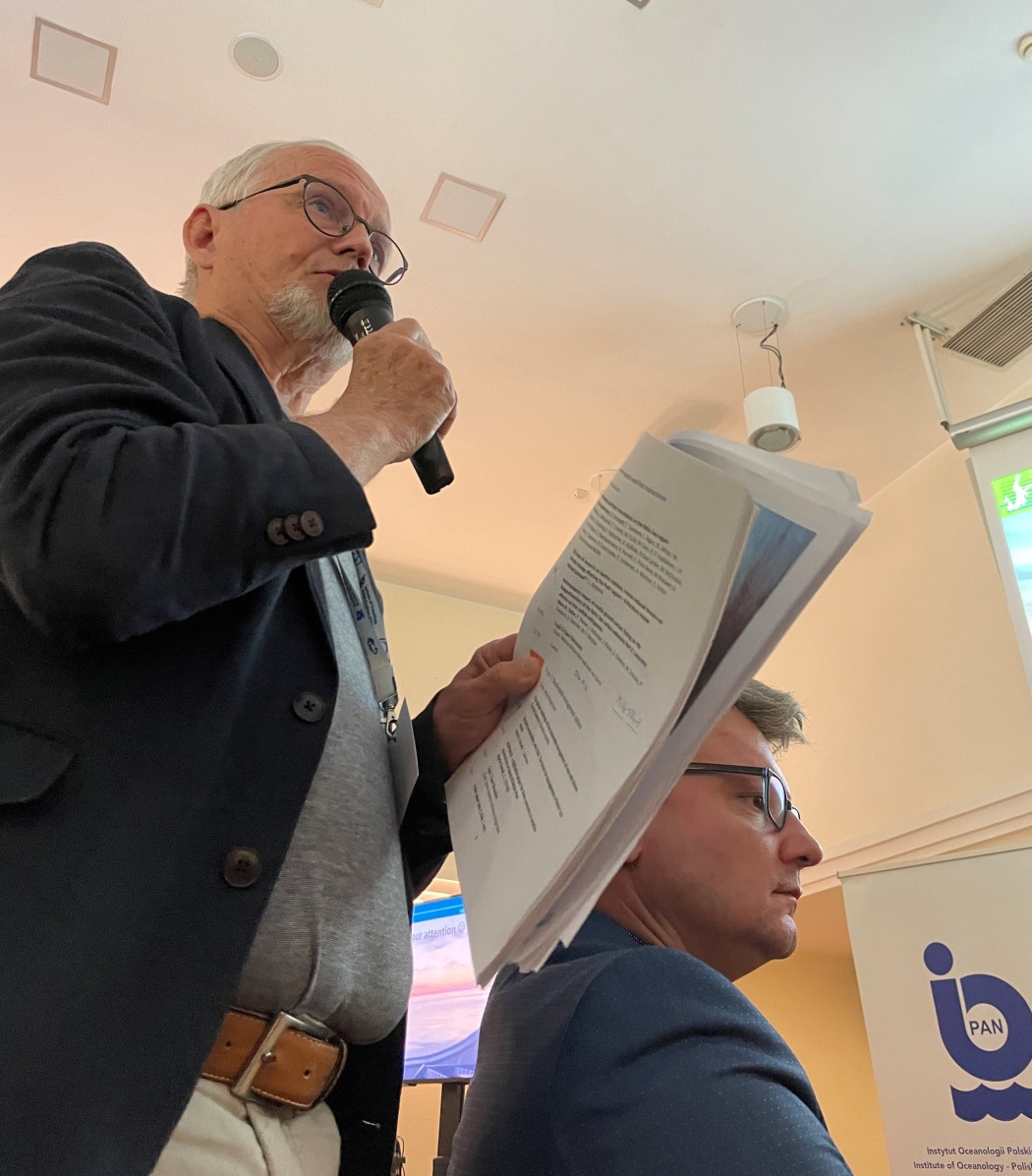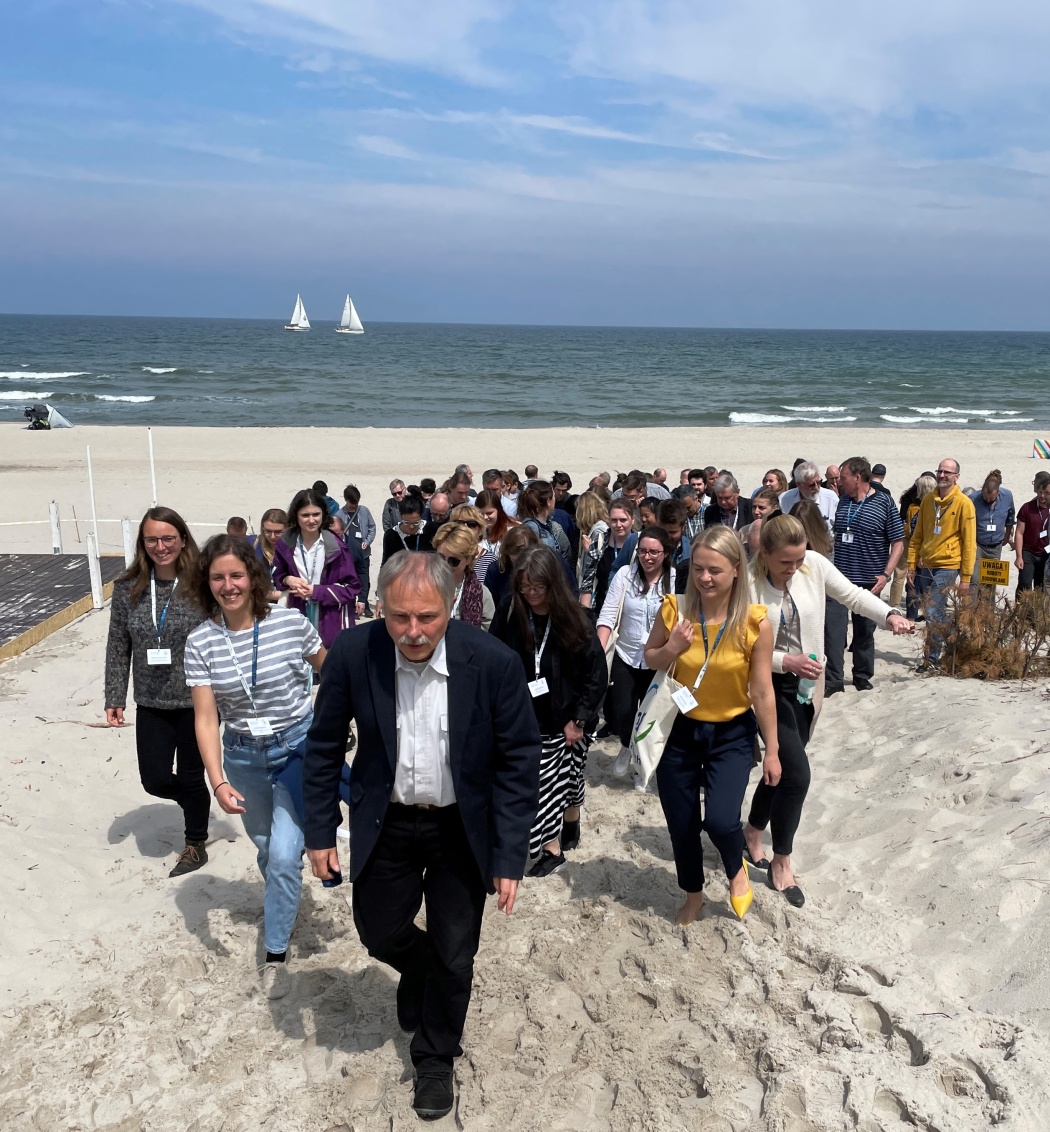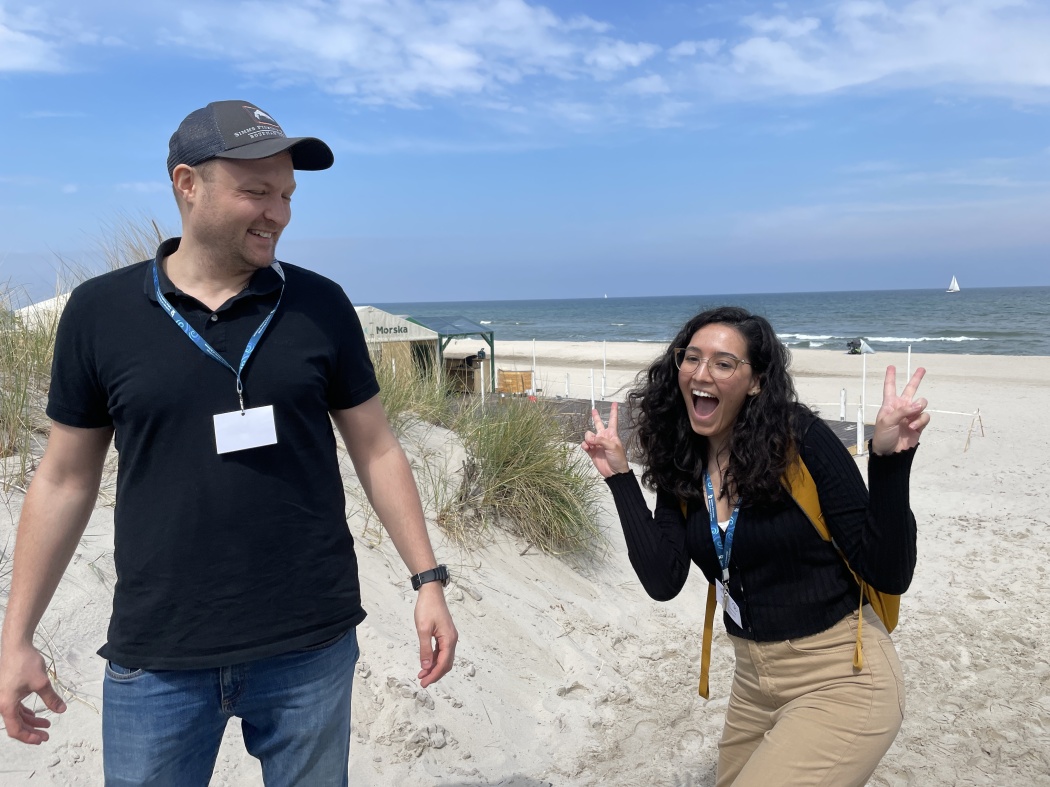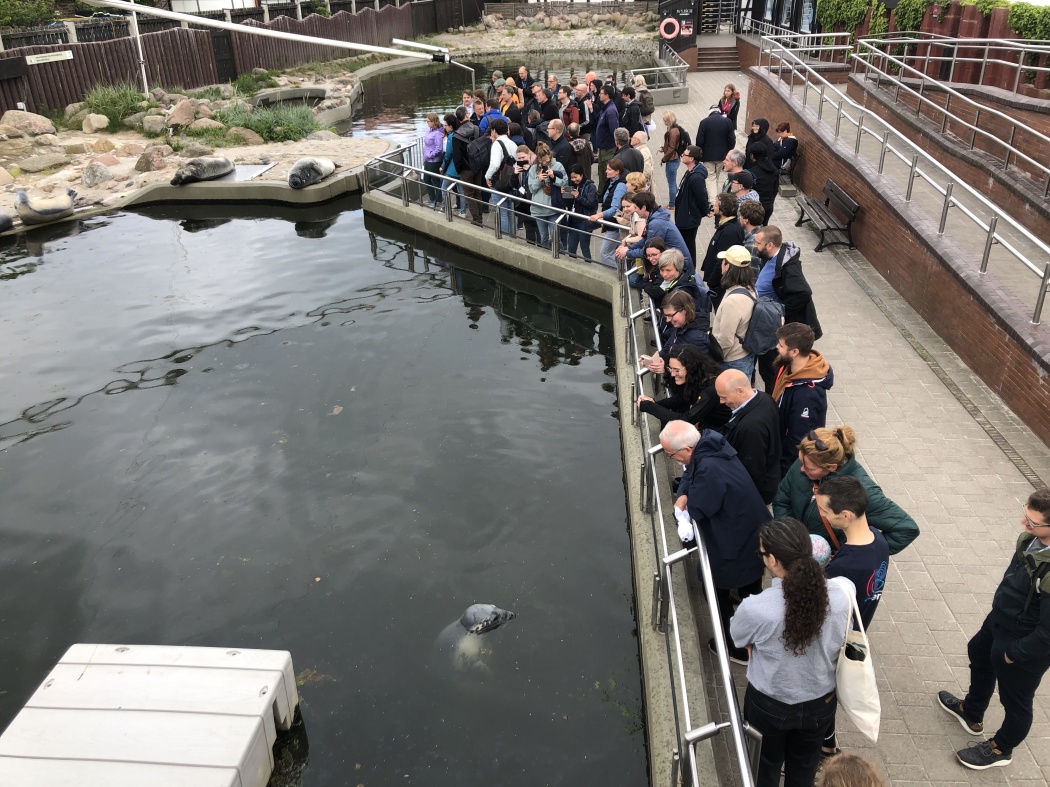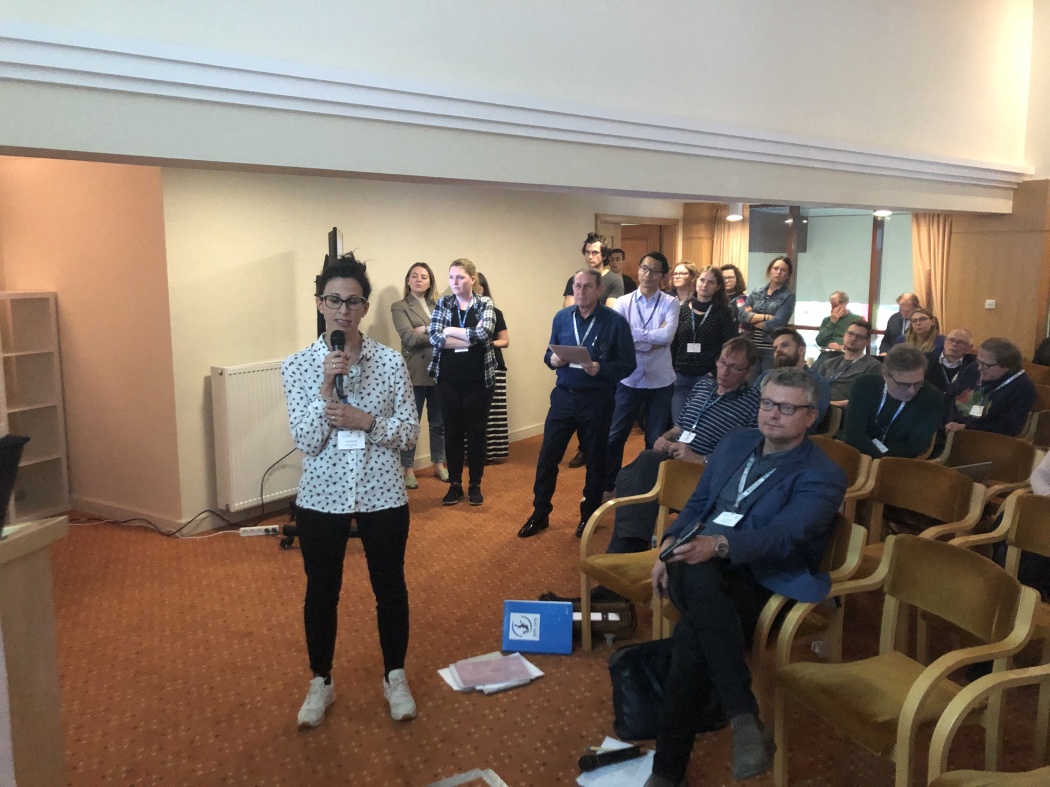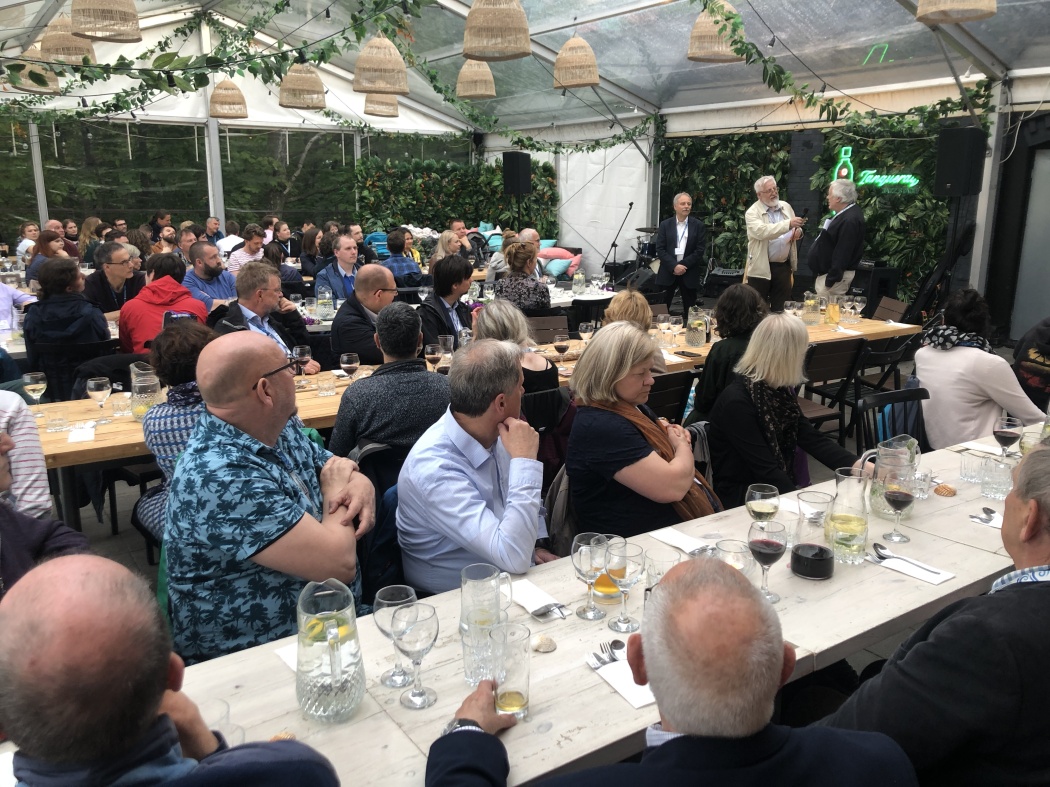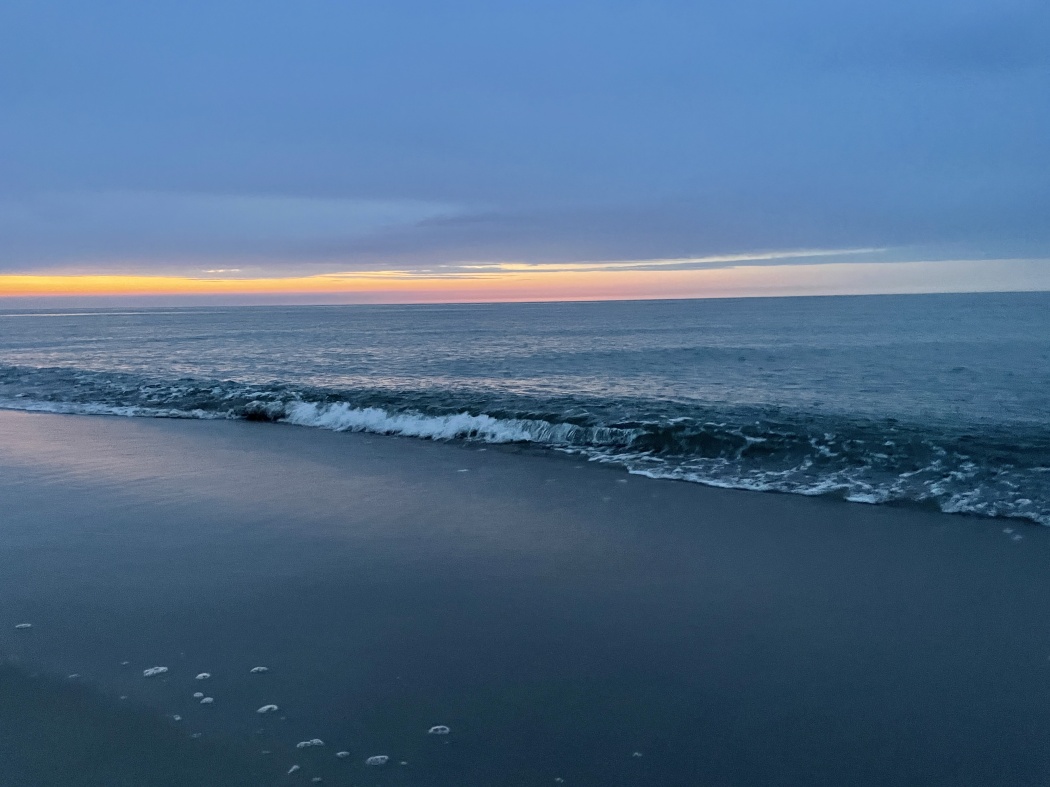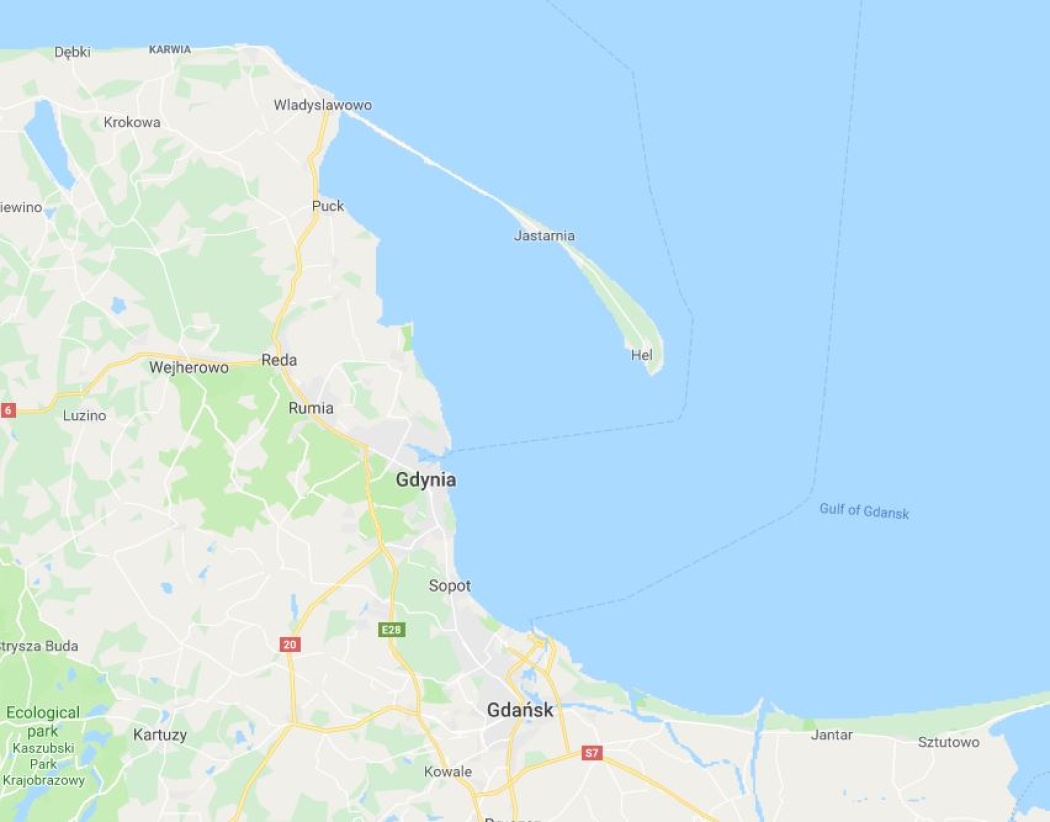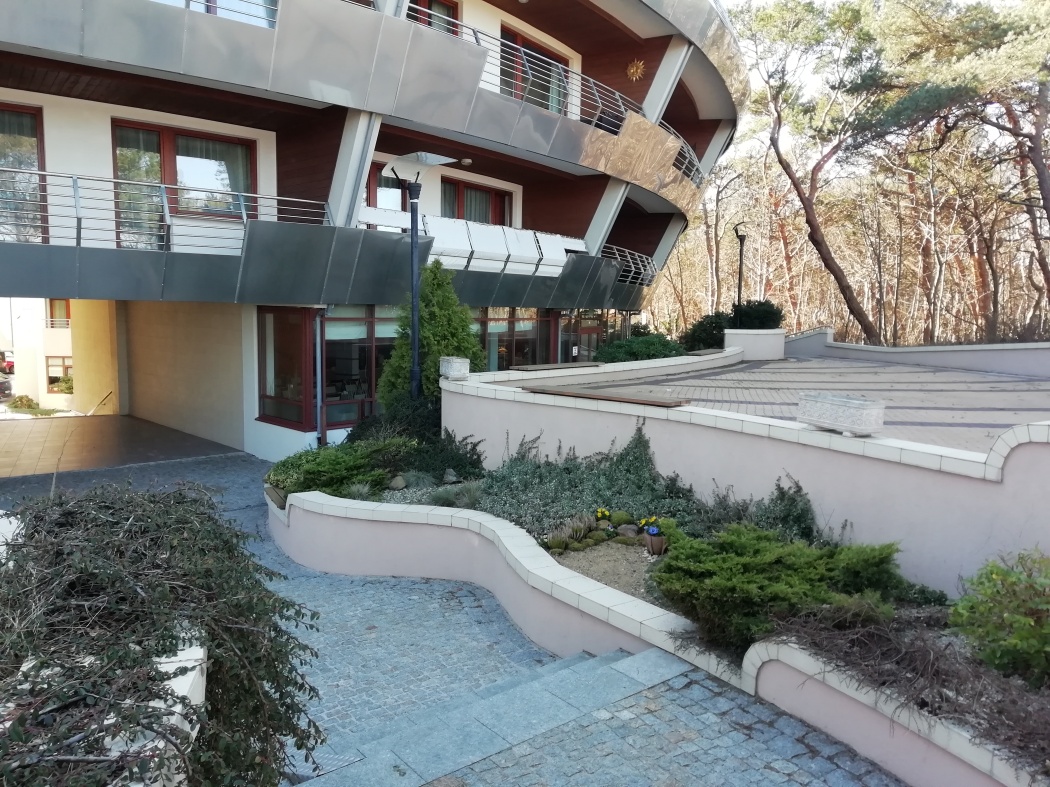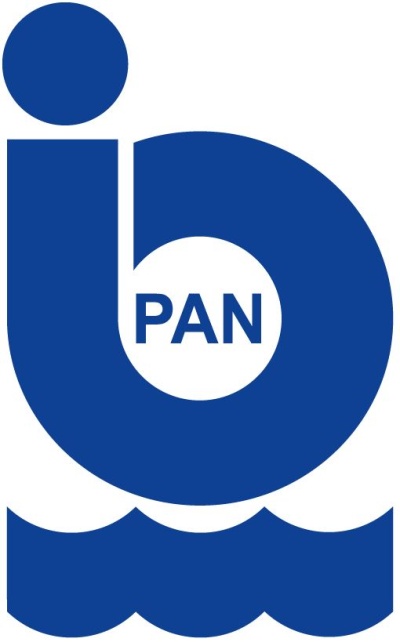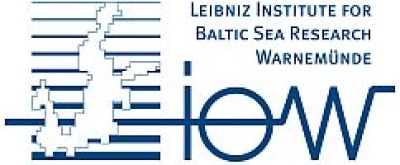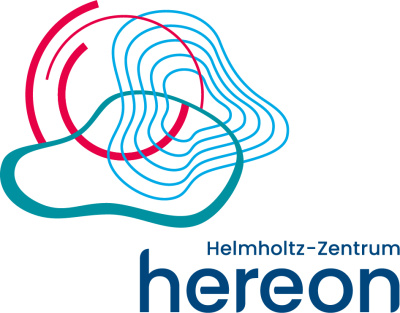4th Baltic Earth Conference
Assessing the Baltic Sea Earth System

- LocationJastarnia, Hel Peninsula, Poland
- Time30 May - 3 June 2022
- HostInternational Baltic Earth Secretariat at Helmholtz-Zentrum Hereon, Leibniz Institute for Baltic Sea Research Warnemünde (IOW) and Institute of Oceanology, Sopot (IOPAN)
Special thank you to IO-PAN in Sopot for an efficient and yet relaxed co-organisation and to the beautiful Hotel Dom Zdrojowy which was a perfect venue!
Instytut Oceanologii PAN
Hotel Dom Zdrojowy Resort & SPA
Helmholtz-Zentrum Hereon
Leibniz-Institut für Ostseeforschung
Find more on the conference in the download section to the right...
The completion of the Baltic Earth Assessment Reports (BEAR) marks the termination of the first phase, nine years after the launch of Baltic Earth. The BEARs provide a retrospect of Baltic Earth related research, current knowledge and knowledge gaps, and wrap up nine years of Baltic Earth activities.
The conference covered the topics of the Baltic Earth Assessment Reports (BEAR), which reflect the majority of Grand Challenges and research themes of Baltic Earth over the past nine years.
Conference participants presented their research around these topics and discussed both Baltic Earth achievements and the way forward. The conference wasintended as discussion forum for scientists, students, managers and other stakeholders. There was also a dedicated young scientist´s event.
The sessions of this conference reflect the topics of the Baltic Earth Assessment Reports and other Baltic Earth topics. In discussing the different topics, we would like to include the perspectives from other marginal seas (like the neighboring North Sea, but also around the world). Contributions from other marginal seas shall help to evaluate the state of the regional Earth system (including human impacts) and management options in the Baltic Sea and elsewhere.
- Salinity dynamics Improved understanding of atmospheric patterns in various space and time scales including precipitation forcing water exchange with the North Sea, between sub-basins, estuaries and lagoons, and impacting on internal circulation, meso-scale dynamics and turbulence. Salinity stratification and its role in increasing areas of hypoxia. Environmental interaction between fish, its reproduction and varying salinity conditions on different time scales in the Baltic Sea.
- Biogeochemical functioning and development: From catchment to the open sea Investigations on the marine and terrestrial carbon, nitrogen and phosphorus cycles and pathways towards an understanding of primary production mechanisms and organic matter transformations in the Baltic Sea; biogeochemical causes and effects of eutrophication, oxygen limitations and trace gas production, including microbiological processes.
- Natural hazards and extreme events Observations, analysis and modelling of high impact events in the Baltic Sea region; frequency and strength of storm surges and waves, flooding due to extreme precipitation events or droughts; prediction systems, probabilistic estimates and attribution analyses.
- Sea level dynamics and coastal erosion Variability and change of mean and extreme sea level. Waves, storm surges, currents, seiches, variations in wind and sea level pressure, river runoff, effects of sea ice, inflows, thermosteric effects, land uplift/subsidence and their effects on sea level/sediment/transport/coastal changes. Projections of future sea level rise, observed and projected long-term trends and multi-decadal variations.
- Regional variability of water and energy exchanges Observation, analysis and modelling of the regional water cycle; precipitation, evaporation, river runoff; hydrological and atmospheric exchange processes; analysis of the natural variability of energy and water components; cloud-aerosol-feedback mechanisms, cloud and atmospheric boundary layer processes; hind- and forecast short- and long-term water and energy exchanges of the past and future
- Human impacts and their interactions Interactions between anthropogenic forcings like eutrophication, pollution, fisheries, aquaculture, shipping, offshore installations, hydrographic engineering, coastal management, agricultural and forestry practices and land cover change with natual forcings; analysis and application of coupled Earth system models capturing interactions between atmospheric, marine and land compartments/processes, as well as responses to anthropogenic forcings; regional detection and attribution efforts
- Sustainable management options to cope with the various human and evironmental impacts described above and climate change, including geoengineering options
- Analysing and modeling past and future climate changes Recent and projected changes in regional climate variables like tenmperature, precipitation, etc., as well as impacts on the atmosphere, hydrosphere, oceanography, and biosphere of the Baltic Sea region; recent progress in the understanding of regional climate variability with special focus on coupled effects between sea, atmosphere, land and anthroposphere
- Comparing marginal seas How do climatic, geological and human impacts in different polar, moderate and other marginal seas compare with conditions in the Baltic Sea?
This session is organized in cooperation with the Marginal Seas Task Group, Deep-time Digital Earth (DDE), IUGS Big Science Program.
Conference Programme
The Draft Conference Programme is now available. Please note that this is subject to change.
4beconferenceprogrammedraft (651 KB)
Call for Papers
The abstract deadline is expired.
Contributions in accordance with the conference topics as outlined above, both oral or as poster, are welcome. Extended abstracts in English, maximum of two pages, including figures, tables or diagrams, are invited to be submitted by E-mail to the International Baltic Earth Secretariat.
An abstract volume will be produced, and a special issue in an international journal with the conference contributions is envisaged.
The Scientific Conference Committee will review the submitted papers, decide on allocation to topic, oral or poster presentation and establish the conference programme. Authors will be notified by mid-February 2020, and the programme is expected to be online by the end of February 2022. The abstract volume will be available electronically prior to the conference. Authors will be invited to submit a full paper based on their presentation for a special conference issue in an international scientific journal to be published after the conference.
An electronic abstract template is available for download below. Please use this template, other formats will not be accepted.
Programme
The Draft Conference programme is now available. Please note that at this point the programme is istill subject to change.
The Hel peninsula
The Polish Baltic Sea coast is approximately 528 kilometres (328 mi) long and extends from Świnoujście on the islands of Usedom and Wolin in the west to Krynica Morska on the Vistula Spit in the east. For the most part, Poland has a smooth coastline, which has been shaped by the continual movement of sand by currents and winds. This continual erosion and deposition has formed cliffs, dunes, and spits, many of which have migrated landwards to close off former lagoons, such as Łebsko Lake in Słowiński National Park.
Hel peninsula is a narrow sandy spit, separating the Bay of Puck, the western part of Gdansk Bay, from the Baltic Sea. It is a part of the Puck County of the Pomeranian Voivodeship, and located close to the metropolitan area of the Tricity: Gdynia, Sopot and Gdansk, with more than 1 million inhabitants, for many of which it serves as a recreational refuge.
The Conference Venue
The conference takes place in the Hotel Dom Zdrojowy in Jastarnia in Puck County, Pomeranian Voivodship, Poland, located on the Hel Peninsula. Hel Peninsula with its two main towns Jastarnia and Hel is a holiday resort for the greater Gdynia-Sopot-Gdansk (Tri-City) metropolitan region.
Hotel Dom Zdrojowy
ul. Kościuszki 2a
84-140 Jastarnia, Poland
Hotel website
Accomodation
We recommend to book accomodation in the Hotel Dom Zdrojowy, where the conference will take place. Single, double rooms as well as appartments have been pre-reserved for conference participants at special rates until 25 March. Please book your room with the Hotel before this date.
Book directly with the Hotel by sending an e-mail to m.lewicka@zdrojowy.com.pl or rezerwacje@hoteldomzdrojowy.pl. Please use the booking code "Baltic Earth Hel 2022". Please note that the Hotel asks a 30% advance payment for booking.
For the invoice, you need to indicate the correct invoicing address (usually the instutute/university address), and the institution´s VAT number.
Gross room prices (approximate prices in €, will be charged in Zloty):
Single: 77 €
Double: 88 €
Double Studio: 88 €
Double Appartement: 137 €
Penthouse (for 4): 252 €
For other options of accomodation in Jastarnia, please refer to the usual booking portals.
Travel
By air: Gdansk Lech Walesa Airport is an international hub which is served by all major airports in the Baltic Sea region and beyond. It is possible to get to Gdansk or Gdynia train station and downtown by train or bus.
By train: From Gdansk Central Train Station (Gdansk Główny) you can take the train to Jastarnia (about 2h ride, change train in Gdynia Główna).
By ferry: From Sweden, there are regular ferries:
from Nynashamn (close to Stockholm) to Gdansk
and from Karlskrona to Gdynia.
By car: Go to Puck and Władysławowo, then on Highway 216 to Jastarnia on the Hel spit.
Below find more infos on connections between Gdansk Airport (Port Lotniczy Gdańsk) and Gdansk Train Station (Gdańsk Główny) to Jastarnia.
Gdańsk Airport (Port Lotniczy Gdańsk) Connections to Jastarnia (652 KB)
Registration and Fees
Early Registration is over. Late registration is possible but higher fees apply. Fees can be paid by bank transfer or credit card. You will find all relevant information via the link below.
Late Fees:
450 € for regular participants
250 € for students (proof of student status required)
The conference fee covers the conference venue, the abstract volume, the Ice Breaker, morning and afternoon coffee and refreshments for 5 days, daily lunches for 5 days and the conference dinner. Accompanying persons will be charged for participation at the conference dinner and excursion.
Details on conference fee payment are available at the registration page, see link below.
Due to limited space in the conference hall, we may have to limit the number of participants. Oral and poster authors have priority.
Social programme
Ice breaker: Monday 30 May 2022 (included in fee)
Excursion: Tuesday 31 May 2022
Conference dinner: 2 June 2022 (included in fee)
Information on the excursion will be available here in due time.
Timeline
Extended abstract submission deadline: 31 January 2022
Notification of authors: 21 February 2022
Programme published: week of 7 March2022
Registration deadline: 18 March 2022
Fee payment and Hotel booking deadline: 25 March 2022
Conference begins: 30 May 2022
COVID19 conditions:
We anticipate that the conference can be held on location in Jastarnia, Poland. There may apply specififc restrictions and conditions in Poland at the time of conference, e.g. concerning the vaccination status. In the event that pandemic restrictions will make an on-site conference impossible, we will may need to revert to an online conference. Paid fees will then be re-imbursed.
Scientific Committee
Juris Aigars, Latvia
Franz Berger, Germany
Inga Dailidienė, Lithuania
Matthias Gröger, Germany
Jan Harff, Poland
Karol Kuliński, Poland
Andreas Lehmann, Germany
Urmas Lips, Estonia
Markus Meier, Germany (Chair)
Kai Myrberg, Finland
Piia Post, Estonia
Marcus Reckermann, Germany
Gregor Rehder, Germany
Anna Rutgersson, Sweden
Sławomir Sagan, Poland
Tarmo Soomere, Estonia
Martin Stendel, Denmark
Laura Tuomi, Finland
Ralf Weisse, Germany
Marcin Węsławski, Poland
Organising Committee
Karol Kuliński, Poland
Beata Szymczycha, Poland
Silke Köppen, Germany
Markus Meier, Germany
Marcus Reckermann, Germany


